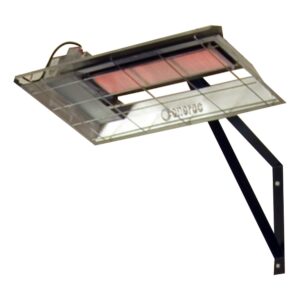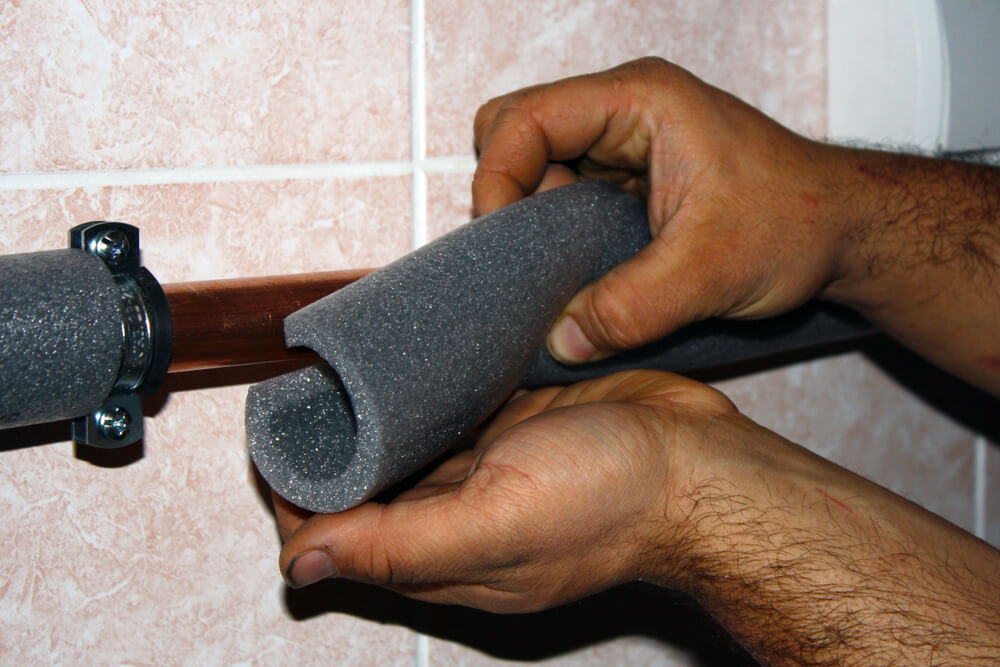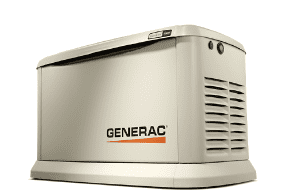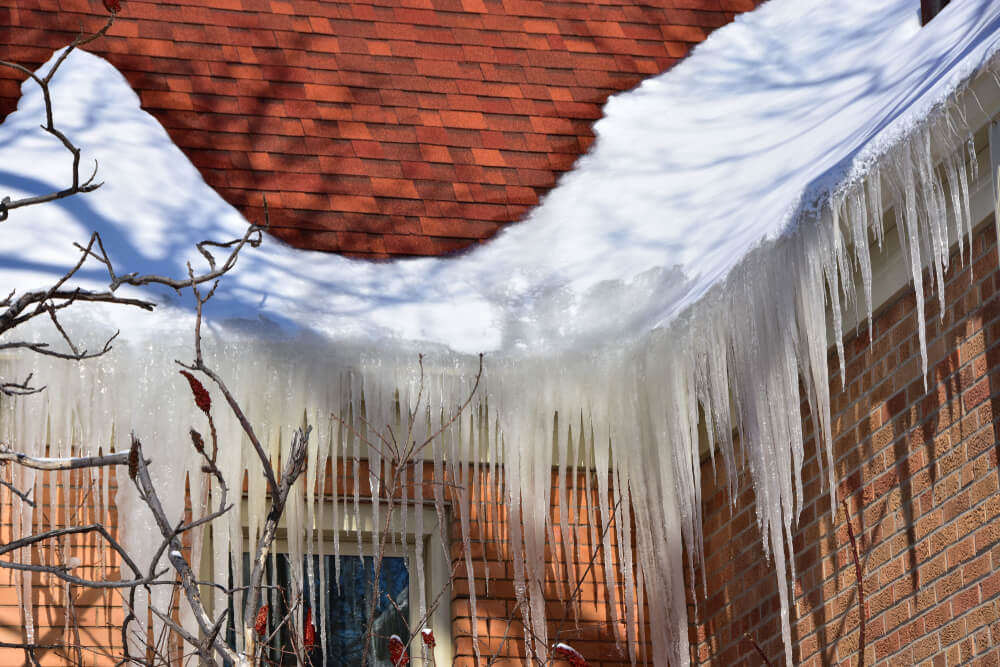The high winds, heavy snow, and ice accumulation of winter storms can create widespread electricity outages that last for days. In many cases, your heat doesn’t run without electricity. To make matters worse, leaving your home to obtain supplies or find temporary shelter can be dangerous if the roads are also compromised by inclement weather.
You can’t prevent power outages, but you can prepare for them. However, if you don’t prepare in time, there are still things you can do to add warmth to your home during a power outage.
How to Prep Your Home Before the Winter Storm Season
The best way to handle power outages is to prepare for them well ahead of time. If you wait until a storm is in the forecast to prepare, you may find needed items out of stock, time too limited to complete needed tasks, or technicians and plumbers all booked up.
When electricity goes out in the winter, so does your main heat source, whether that is a furnace, boiler, or electric heat. Even gas furnaces cannot run without electricity. To prepare, research alternative heat sources that don’t need electricity.
Install an Infrared Garage Heater

Natural gas infrared heaters like our Auto-Ray Infrared Garage Heater provide excellent sources of heat with absolutely no electricity. Infrared garage heaters keep your garage warm all winter long for pennies a day.
Your heated garage will also provide warmth to the adjacent rooms in your home and will also help keep the exposed pipes in your garage from freezing. Infrared garage heaters create a great warm zone in your home during winter electrical outages.
Have Your Water Heater Checked
Did you know your tank water heater can be an alternative heat source? Most tank-type water heaters do not use electricity. Even if it needs electricity to ignite the gas and heat the water, the heated water left in your tank after the power has gone out can be used to fill a bathtub, which can raise the temperature in your bathroom enough to bring you some comfort.
The pilot light of your heater should stay lit, allowing the water heater to work without electricity. In a pinch, the water heater will continue heating water, and you can periodically refill the bathtub when its warmth has run out.
Get your water heater tuned up by our expert plumbers to ensure it is working reliably, and while they are in your home, ask them what type of ignition system it uses.
Insulate Your Plumbing

The heat in your home is the only thing keeping your pipes from freezing during the coldest weather, and once a frozen pipe thaws, it can burst and flood your home.
Have our expert plumbers perform a plumbing safety inspection, and ask them which of your pipes would be most vulnerable if you lose heat during a power outage. Some pipes can be insulated to help prevent freezing and bursting.
Consider Generators
 Your furnace requires electricity to run. Even natural gas furnaces and boilers need electricity. The electricity is used to power the motor and fan. The fan is necessary to move the heat from the furnace through your duct system. Power is also necessary for non-battery-operated thermostats.
Your furnace requires electricity to run. Even natural gas furnaces and boilers need electricity. The electricity is used to power the motor and fan. The fan is necessary to move the heat from the furnace through your duct system. Power is also necessary for non-battery-operated thermostats.
If you have a portable generator, you can run select appliances like your furnace long enough to get you through a day without electricity.
You can also get a whole-home generator installed to protect your home from wintery power outages. These generators are more robust, have higher capacities, and are already set up for use when a winter storm rolls in.
Install Carbon Monoxide (CO) and Smoke Detectors
Heating your home in winter is a potentially dangerous proposition, even without a power outage. Your home should have carbon monoxide (CO) and smoke detectors on every level and preferably in every bedroom. There are several good options available, and some even connect to the internet via your WiFi connection and can warn you through an app on your phone if danger is present, which is nice if you keep your phone by your bed.
It is especially important to have CO and smoke detectors in place if you are utilizing alternative heat sources during a power outage. Combustible heat sources produce CO, which has no smell and can cause drowsiness, loss of consciousness, and death. Even your gas furnace may produce CO, which is why it is important to get a furnace safety check every year.
Stock Up on Fuel
Since you lose heat in winter without electricity, you should fill up on fuel for your generator if you have one. Keep your cars full of fuel, too, as they can be temporary warming stations while running—outside of the garage, of course. If you are lucky enough to have a wood stove, keep your log supply stocked up.
Stock up on Water
Power outages can rob your home of not only warmth but of water. Electricity is needed to run water pumps, so homes on well water can lose their water when they lose their electricity. Even homes on municipal water aren’t safe if a power outage disables the water plant pumps; you will have only a small amount of pressure left in your pipes until you lose your water completely.
Keep a stock of drinking water on hand just in case the worst happens, and use water from your tap sparingly.
Purchase Battery Back Ups for Your Devices
You can purchase battery backups that will recharge your phones if you find yourself away from electricity sources. Buy these for your cell phones, and consider purchasing them for your computers as well. It is important to have a charged phone during weather emergencies, so keep these devices charged and ready to use.
How to Act Quickly Once You Lose Power
Once the power has gone out, you won’t have long before your home becomes uncomfortably cold. The cold could possibly be dangerous to children, those who are sick, and pets. Take these steps to make sure your family stays safe.
Consider Leaving Your Home
If your family and pets are “portable,” your best course of action might be to move them to a hotel for the night. Hotels usually have backup generators in case they lose power, but it is always good to ask to make sure. Be careful making this decision, however, as the same conditions that cause winter power outages can cause dangerous driving conditions.
If you find it unwise to leave home, remember that you can always use your vehicles as temporary warming stations if taken outside of the garage first. Running cars produce carbon monoxide, which can quickly fill up a garage and is dangerous to breathe.
To remove your car from your garage after your power goes out, you will have to open the garage door manually, which may not be possible until you first disconnect the mechanical door opener from the garage door.
Safely Add Heat to the House
Turn up your infrared garage heater if you have one. Fifty degrees is a good temperature for normal use, but they can be turned up much higher, which will not only get your garage toasty but will help heat your adjacent rooms.
If you have a wood stove, fire it up and keep it burning. If you have a limited amount of wood, burn at regular intervals, letting it get cold between burns.

Unless it has a fan to circulate heat, you may lose more heat up the chimney than you generate by burning wood or gas. Never use your fireplace without opening the flue first, and only use your fireplace or wood stove if it and your chimney have been inspected recently and are in safe working condition.
Use the sun for heat. If it’s a sunny day, open the blinds on the windows on the sunny side of the house. Place dark blankets on the floor, furniture, or bed in direct sun to soak up the sun’s heat. As soon as the sun goes down, re-insulate the windows the best you can.
Run a bathtub of hot water; it will add heat to the rooms around the bathroom. You could take a hot shower to warm up, too. Standard tank-type water heaters do not use electricity, so you can take advantage of always having hot water.
Insulate Your Home and Yourselves
Eliminate heat loss to your home by closing curtains and blocking drafts. Only open your doors if it is absolutely necessary. Move to the warmest room of the house and camp out there. This might be the basement during the winter due to the insulating power of the earth. Bring your warmest blankets and coats with you.
Eliminate heat loss to your body by putting on layers, including long underwear, warm socks, and a hat. Consider using chemical hand and foot warmers, but never directly on the skin. Even self-heating pain relief pads can work in a pinch, but they get very hot and can burn the skin as well.
Staying hydrated can help you stay warm, so make sure you drink enough water. Do not drink alcohol, as it will lower your body temperature. Your body requires more food to stay warm in the cold, so make sure you eat enough, too.
Use Water Wisely
It is best to conserve water for drinking in case the power outage stops water pumps from getting water to your home. But, if the temperature outside is well below freezing, do turn on your faucets and let a pencil-sized stream of water run to prevent your pipes from freezing. As far as flushing your toilets, use the yellow-mellow, brown-down rule.
Give Anthony a Call
Call us before, during, or after a power outage for help. There are always ways we can help you, and we want to help if we can. You can reach us by calling A-N-T-H-O-N-Y (268-4669) in Kansas and Missouri, or by contacting us online.

